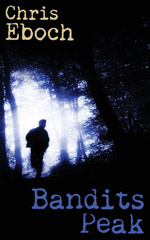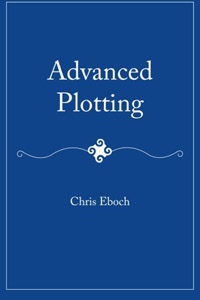by Chris Eboch
Writers mainly work alone, so a conference can be a great chance to meet peers, feel connected to the industry, learn more about the craft and business, and maybe even develop a relationship with an editor or agent. So let’s talk about making the most of your conference time.
When people hear the word “networking,” most imagine trying to impress bigwigs who could help their career. But many writers don’t feel comfortable selling themselves. If your goal at a conference is to grab an editor and convince her you’re wonderful, you’ll feel anxious. And if you fail to wow—or even meet—the editor, you may feel like a failure.
Instead, think of networking as making friends. During her first major conference, children’s book writer and illustrator Holly Cupala decided to “think about making connections with people who share a love of children’s literature—future friends rather than future contacts.” During the four-day conference, she talked with dozens of people, including many of the famous speakers. She says, “I chatted with people I never would have dreamed of walking up to if I was in ‘networking’ mode. I connected with people by being open and letting go of expectations.”
Talk to everyone, from beginners to the pros. You never know who might be fascinating—or helpful in the future. Today’s “nobody” may be tomorrow’s success story, on a first-name basis with top editors and agents. Even better, he or she may be interesting and fun.
Ready, Set …
Armed with the proper attitude, you’re sure to have a good time. Get even more out of the conference by planning ahead.
Read books to learn the basics—how the publishing industry works, standard submission guidelines, the genres—so you won’t be confused when speakers throw around industry terms. You can also direct your questions better, to take advantage of a particular speaker’s expertise.
Next, investigate the conference speakers. Review editors’ submission guidelines and study the books they’ve edited. Read books by the other speakers. Be prepared to offer honest compliments of their work or to ask intelligent questions. Then you won’t go blank when you’re suddenly faced with your idol. The web is a great place to find articles by or about the speakers.
Prepare for opportunities by practicing one-sentence synopses of your manuscripts. You don’t want to ramble and stammer when someone—especially an agent or editor—asks what you’re working on. If they don’t ask, don’t be pushy, but try asking them what they want. According to children’s book author Shirley Raye Redmond, “I sold my very first juvenile novel (Grampa and the Ghost) by simply asking the editor what she was looking for. She told me and I said, ‘I think I have something you might like.’”
When you meet someone, it’s nice to have an official way to exchange information, so get business cards (you can order them online inexpensively).
Go!
On conference day, arrive early and practice your networking—or friendship—skills. Smile, say hello, and ask a simple question. Take an interest in people. Ask what they write. Offer compliments, ask questions, and listen. When I’m feeling shy and alone, I find someone who looks even more shy and alone. I walk up to them, smile, and say, “How are you enjoying the conference?” They are always delighted to talk.
It can be easier to pair up with a friend for the conference, but be careful not to spend your whole time with just one person. After all, your goal is to make new connections, so work together to meet people. Go to different workshops and share notes.
When you exchange business cards, jot notes about the giver on the ones you get. You might write something like, “2011 SWW. 40s, short brown hair. Writing sci fi.” Then when you get back from the conference with a handful of cards, you’ll find it much easier to remember who gave them to you.
The Finish Line
All that hard work only pays off if you follow-up. Write “nice to meet you” notes to people who gave you their business cards. Thank anyone who gave you advice. Type up your notes while they’re fresh in your mind. A few jotted phrases that made perfect sense during an inspiring talk can read like hieroglyphics a month later.
Then set some goals based on what you learned. A good conference may provide you with dozens of pages of advice and ideas. Don’t try to do everything at once, or worse, ignore it all because you feel overwhelmed. Instead, choose three things to focus on. They might involve craft, research, or marketing. Review your notes in a few months and set new goals.
Finally, critique the conference. Think about the workshops, speakers, events, other attendees, and your own behavior. Was it worth your time? How can you prepare better for next time? Make notes to review before your next conference, so that one will be even better.
 Chris Eboch writes fiction and nonfiction for all ages. In Bandits Peak, a teenage boy meets strangers hiding on the mountains and gets drawn into their crimes, until he risks his life to expose them. The Eyes of Pharaoh is an action-packed mystery set in ancient Egypt. The Genie’s Gift is an Arabian Nights-inspired fantasy adventure. In The Well of Sacrifice, a Mayan girl in ninth-century Guatemala rebels against the High Priest who sacrifices anyone challenging his power. Her writing craft books include You Can Write for Children: How to Write Great Stories, Articles, and Books for Kids and Teenagers and Advanced Plotting.
Chris Eboch writes fiction and nonfiction for all ages. In Bandits Peak, a teenage boy meets strangers hiding on the mountains and gets drawn into their crimes, until he risks his life to expose them. The Eyes of Pharaoh is an action-packed mystery set in ancient Egypt. The Genie’s Gift is an Arabian Nights-inspired fantasy adventure. In The Well of Sacrifice, a Mayan girl in ninth-century Guatemala rebels against the High Priest who sacrifices anyone challenging his power. Her writing craft books include You Can Write for Children: How to Write Great Stories, Articles, and Books for Kids and Teenagers and Advanced Plotting.
Learn more at www.chriseboch.com or her Amazon page, or check out her writing tips at her Write Like a Pro! blog. Sign up for her Workshop newsletter for classes and critique offers.
Chris also writes novels of suspense and romance for adults under the name Kris Bock; read excerpts at www.krisbock.com.
This article was originally published in the September 2011 issue of SouthWest Sage and is reprinted here by permission of the author.


